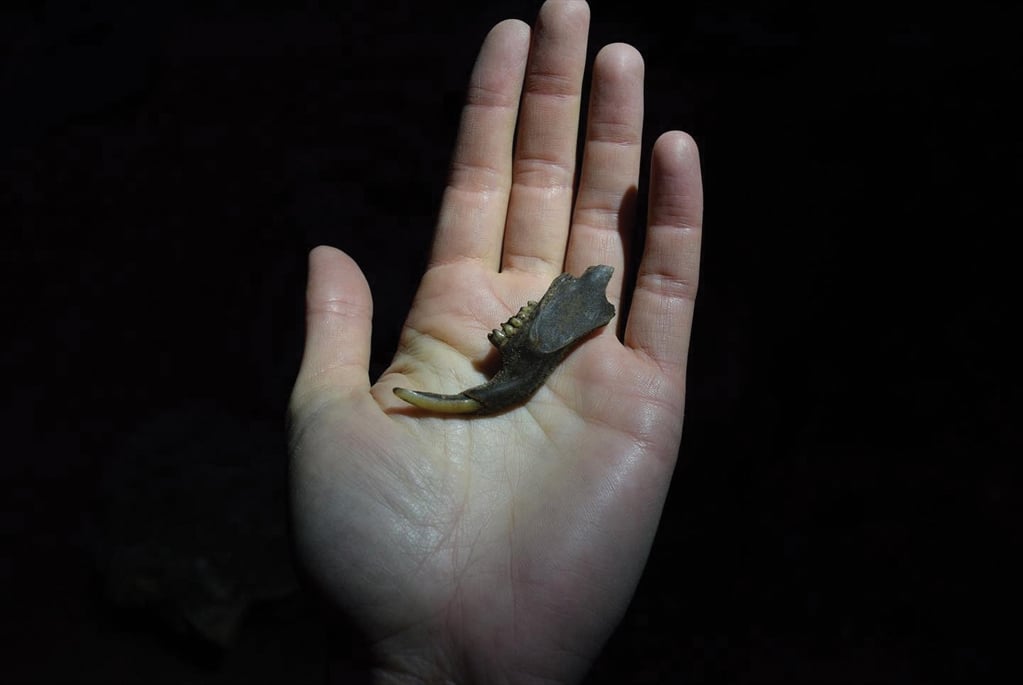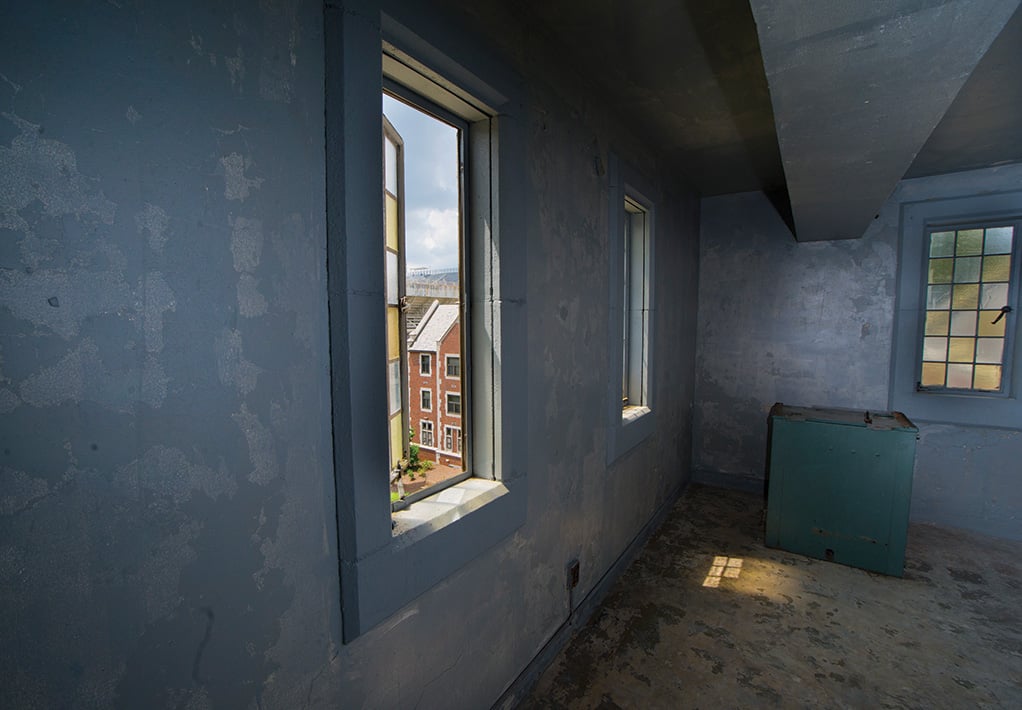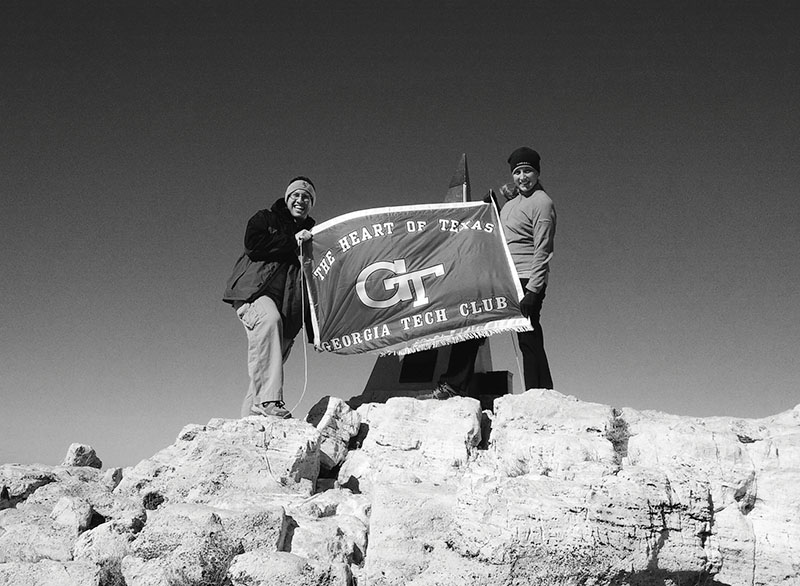A Cage Match With the Highest Stakes
By: Bill Chastain | Categories: Alumni Association News
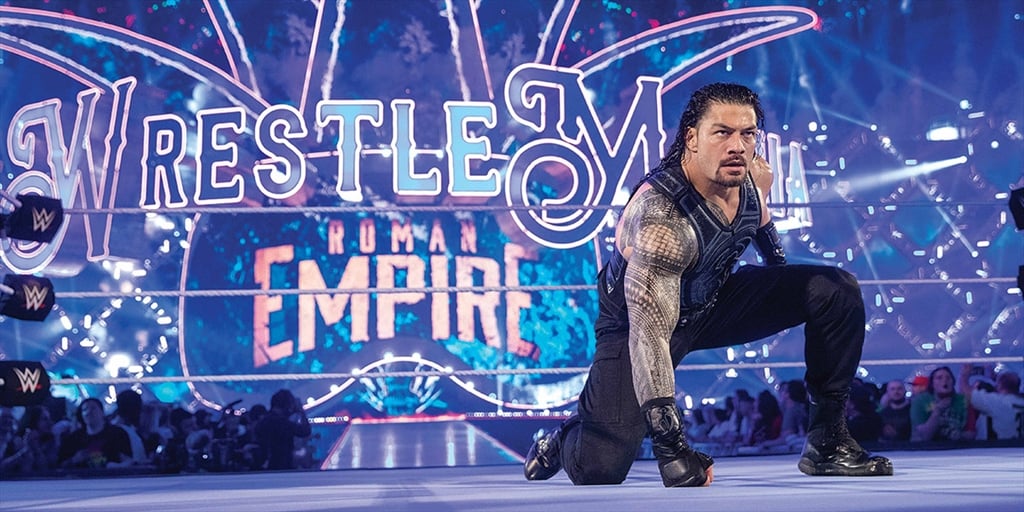
Former Tech football standout Joe Anoa'i, Cls 06—better known as professional wrestling star Roman Reigns—finds himself in a rematch against leukemia that he’s determined to win.
Winter 2018 Vol. 94 No. 4 | BY BILL CHASTAIN, IM 79
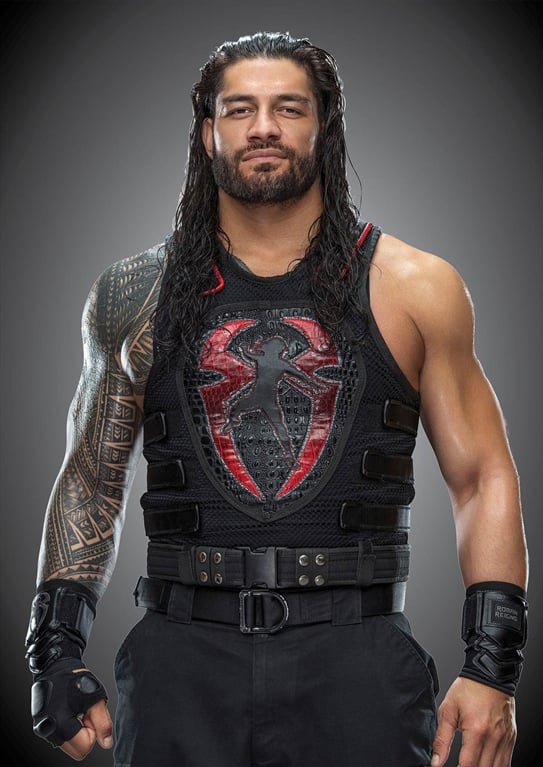
Bulging muscles, good vs. evil storylines, and smack talk galore define World Wrestling Entertainment (WWE) on most nights.
Roman Reigns delivered a sobering contrast during the telecast of WWE Raw on Oct. 22, 2018. That’s when Reigns—aka former Yellow Jacket defensive lineman Joe Anoa'i—announced that he would be vacating his heavyweight Universal Championship title to concentrate on his health. Anoa'i’s leukemia, which he first battled at age 22, had returned.
The following day, a surprisingly upbeat Anoa'i talked to the Georgia Tech Alumni Magazine about his journey, the major fork in the road he’s now encountered twice, and the path he must follow to return to the grand life he’s made for himself through professional wrestling.
First, the battle.
Anoa'i, now 33, was diagnosed with leukemia 11 years ago, shortly after leaving Tech to pursue a career in the National Football League. The news hit him at the worst possible time.
He didn’t have a job or a home, he had little money and his wife was pregnant. Fortunately, the leukemia quickly went into remission through initial treatments.
He feels he’s better prepared for the fight this time around, and he wants to make his situation clear: He’s only stepping away from wrestling temporarily to battle this recurrence of cancer—he’s not retiring.
“I think with my great support system, and the love of my family and close friends, it’s going to be a lot easier than last time,” Anoa'i says. “But that’s the main thing, just get healthy and get back to work. … I know everything is going to be all good again.”
Anoa'i believes he’s just begun to scratch the surface where “entertaining and performing” are concerned. “That’s still a big part of me,” he says. “I feel like I still have a long life span for my career, so I’m eager to knock this thing out of the park and get back to my normal schedule.”
The road to his stellar, still-young career as one of the WWE’s brightest stars began at Georgia Tech. And being a Yellow Jacket meant far more to Anoa'i than just football. Looking in the rearview mirror, he believes the people he met at Tech gave him the drive to excel and persevere whatever life threw at him.
“It’s like the situation when people describe home, and it’s not the house, it’s the people that make it home, the family,” Anoa'i says. “That’s what we have at Georgia Tech. I think that’s just a part of the culture.”
Anoa'i notes “you immediately know you’re a part of something” when you first step onto the Tech campus.
Galina Becker, Mgt 09, is inarguably the most important person Anoa'i met during his days at the Institute. She ran track at Tech and went on to have a successful career as a fitness model. Becker and Anoa'i had a lot in common—both studied business management and both were athletes. What started as a platonic friendship eventually turned into romance, and today they are married and have three children.
“She’s not only my wife, she’s my best friend,” Anoa'i says.
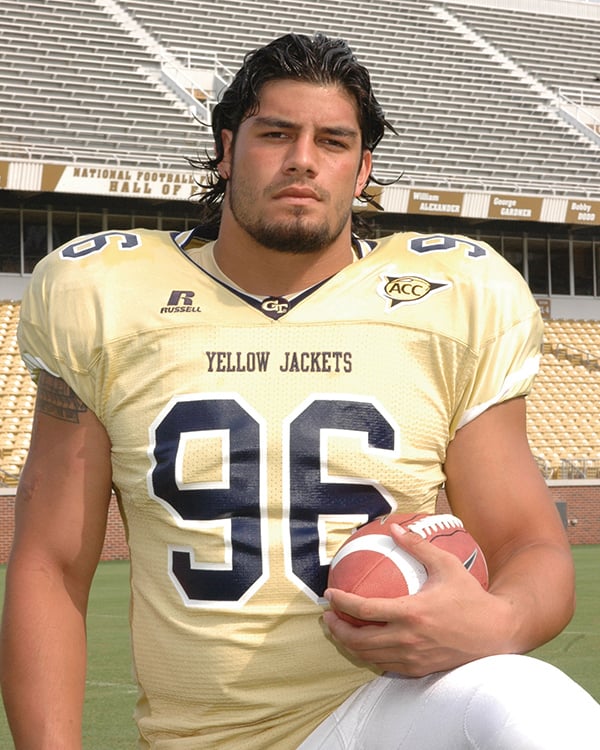
Anoa'i started on the defensive line for the Yellow Jackets for three years. In 2006, his teammates voted him a captain for what was his senior year, and he went on to earn first-team All-Atlantic Coast Conference honors as the team under Chan Gailey won the ACC Coastal Division.
“Playing for Tech when I did, it was such a good time and on such a good team,” he says. In total, Anoa'i registered 29 tackles for loss and 12 sacks during his career at Tech.
Success in the pro pigskin ranks, however, proved to be more difficult.Anoa'i wasn’t selected in the 2007 draft, but signed as an undrafted player with the Minnesota Vikings. He was released in late spring, then the Jacksonville Jaguars picked him up, only to drop him a week before the start of the season.
Undeterred, Anoa'i played for the Edmonton Eskimos of the Canadian Football League in 2008, starting three games. He hoped to build up a playing resume that would get him back to the NFL, but ultimately pro football wasn’t in the cards for him. Still, he left the sport positive that he’d given it his all.
“I’m always going to be satisfied with the effort that I put in,” Anoa'i says. “It was an extremely complicated time in my life, when I was getting toward the end of my football career and I had been fighting my first battle with leukemia. But I think everything happens for a reason. So I don’t hold any grudges or negativity toward my football career. In a lot of ways, it saved my life.”
What came next didn’t come out of the blue. Professional wrestling had been a part of the Anoa'i family tree for decades, originating with his father (Sika) and uncle (Afa) who wrestled together as the Wild Samoans back in the 1970s and 1980s, when the sport started to pick up in popularity.
When his leukemia went into full remission, Anoa'i decided to follow suit, even though he was joining a profession that is by and large considered “entertainment” and not a “real sport.”
“Football and professional wrestling have their obvious differences, but what keeps them sustainable is that they’re both entertaining,” Anoa'i says. “It’s all about the views and how many eyes are watching the product. The NFL and even the NCAA are businesses, and if people are not entertained by watching them, they wouldn’t be held on the shelf that they are. So the change from football to wrestling really wasn’t a big issue for me. The main part was getting out from a defensive lineman mindset and trying to transition to becoming the quarterback, the main guy.”
Professional wrestling’s entertainment label doesn’t make the pursuit any less demanding.
“It’s still extremely athletically demanding, though I never really had any trouble learning any of the maneuvers or how to handle myself in the ring,” Anoa'i says. “Coming from a wrestling family gave me a huge advantage—I’ve been watching and studying their moves for years.”
But the physicality and athleticism involved aren’t the most challenging aspect of wrestling.
“When it comes down to it, the physical is a small part of the wrestling, probably 30 percent,” Anoa'i says. “The cerebral aspect is the most important part, about 70 percent, because you have to always be on your toes to promote your character inside and outside of the ring, especially for the live performances, regardless if they’re on TV or not.”
When Anoa'i found himself on the path to wrestling stardom, he lacked only a catchy name to take into the ring. As he was cutting his teeth in the ring, he tried Joe Anoa, Leakee and then “Roman” Leakee, but none of those names stuck. Corey Graves, now a WWE commentator, urged him to stay with Roman and helped him figure out what to pair with it.
“I was telling Corey I had no clue what to call myself and the pressure was on,” Anoa'i says. “I had thought of ‘Rains’ as a last name, and he said, ‘How about changing the spelling so it’s ‘Reigns’—like a king?’ The sound and the flow just sounded nice to me, and it kind of played into everything with my developing character.”
Thus came the birth of Roman Reigns—a persona that was first devised as a villain, but over time turned into a hero as he swiftly moved up the ranks of pro wrestling and eventually became a WWE champion.
Anoa'i has enjoyed his wrestling career for many of the same reasons he cherished his time at Georgia Tech, in particular the relationships.
“I’ve just made so many good friends in the WWE and beyond,” Anoa'i says. “This business is a crazy business. It’s hard to understand for people, especially athletes. You’re always competing. You’re always going at another athlete as hard as you can and you’re always trying to win.”
But ultimately it’s not the winning of matches and titles that’s most important to Anoa'i. It’s entertaining the fans.
“When your performance is good, when you’ve moved the audience and you have them standing up at the end of the match—that’s winning.” he says. “We’re all winning—even if you’re the wrestler who just lost the match. Everybody is winning because the crowd has become lost in the story that we’re telling.”
Prior to the 2018 football season, Georgia Tech Athletics asked Anoa'i to come back and help unveil its new Adidas football uniforms and gear. “I was very flattered,” Anoa'i says. “It really made me happy to come home to Tech and be back in that family again.”
Anoa'i remains grateful for his years at Tech, and he’s hopeful about continuing his relationship with the school.
“In this roller coaster of life, you lean on each other and that’s why people bond so closely, and I think that’s why Tech is such a great community,” Anoa'i says. “It’s a tight-knit community, just like in wrestling—you have to be cut from a certain cloth to succeed in both.”
